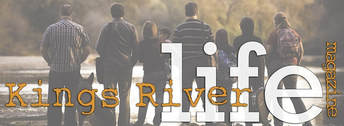 I missed posting a short story review last week, so today I present two different authors, both with short fiction that made its original appearance in the past. Fatal Flaw by Cathi Stoler appears in Kings River Life Magazine September 23. According to the introduction, this story was published several years ago. It opens with the lines, "A few fates are worse than death. I should know. I’m living one right now." The protagonist Nick Donahue is being held captive, having run afoul of dangerous gangsters determined to obtain a critical bit of information from him. Donahue, a high stakes gambler, insists he not be compared to James Bond, but the suave playboy lifestyle gadding about Europe suggests otherwise. Fatal Flaw is a fun read. Don't take my word for it. You can click here to read it for free. 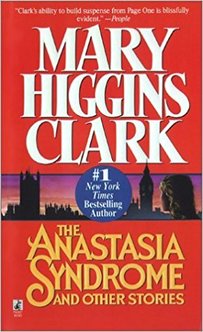 My second review is The Anastasia Syndrome and Other Stories by Mary Higgins Clark, published in 1989. I can't remember whether I bought this at my favorite used book store, or nabbed it from my mother's mystery book shelf. There is a reason Clark is a multi-published best selling author. The stories in this collection were real page-turners. The title story is actually a novella. A woman seeking to learn about her birth parents from a controversial psychiatrist is accidentally regressed a couple centuries too far. Well worth the read, but I'd like to mention the story Lucky Day. Think O. Henry's The Gift of the Magi with a perverse twist. An annoying elderly friend brags about today being his lucky day, then disappears. Nora searches for answers, then doesn't like what she learns. All the stories in the collection are worth checking out. The book is available in the usual places.
0 Comments
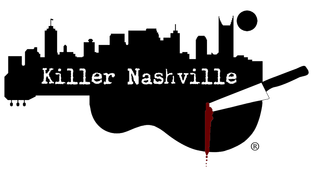 Often conferences end at noon, with a grand finale luncheon and keynote speaker. Killer Nashville had events going until 3, and even had a social and networking opportunity that evening. Unfortunately, we had many a mile to travel. I had to get home in time for work Tuesday, and we still wanted to see Nashville. I enjoyed the buffet breakfast one last time, then heard another great motivational speech. 8:30 Sunday August 27 – Where Do You Go From Here? The closing speaker Pamela Fagan Hutchins said she has observed that after a conference, people typically do one of three things: they go catatonic, their heads explode from an overload of stimulation and information, or they experience 13 weeks of mouse-on-a-treadmill meteor-to-ashes writing before collapsing. She suggested giving yourself permission to write at your own pace. Her key line was, “You only have to do this today – tomorrow you can quit.” She closed with a line that mirrored the opening speaker’s message, telling the audience to find joy in the milestones.  View from the elevator View from the elevator 9:50 Sunday August 27 – Agent Round Table I have a novel that has yet to find a home. I suspect the beginning has issues, so I was eager for the opportunity to run those critical first pages by an agent. Annie Hwang from Folio Literary Management generously reviewed two pages from five authors in a round table setting. Ms. Hwang did a terrific job of explaining the elements she needed to see in the opening line and first few pages. A light bulb blinked on for me, as I understood what she meant, and how my opening was lacking those elements. I think I have a great book, but I need to focus on creating a beginning that instantly lets an agent know what the story and characters are about. At this point, completely saturated with wisdom, inspiration, and more socializing than I typically do in months, for some inexplicable reason I began watching my Fitbit for the time. It was still set to Colorado time. I realized I was fifteen minutes late for a panel on comedy. I decided I could either just not show up, or fulfill my obligation despite arriving embarrassingly late. 10:50 Sunday August 27 – That’s Funny: How to Write Comedic & Humorous Thriller / Mysteries Ross Cavins – moderator; Barbara Collins, Catherine Dilts, Elena Hartwell, Charley Pearson Hopefully I redeemed myself for my late arrival with my response to whether murder could be funny. As an example, I used Carl Hiassen’s inventive and hilarious murders, such as death by dolphin sex. People who had read Hiassen nodded knowingly, as they erupted in laughter. The panelists, who all write mysteries, discussed the fine art of humor. Some had made a study of the elements of humor, explaining the difference between a joke and comedy. They even touched on that difficult concept, what makes people laugh?  The Antiques Archaeology Nashville store - American Pickers is our favorite TV show The Antiques Archaeology Nashville store - American Pickers is our favorite TV show My husband had packed up and was ready to hit the road. While the drive to Nashville had felt like a mini-adventure, when we headed for home, we just wanted to get there. I’m sure you know the feeling. However, we still needed to see Nashville. My hairdresser had recommended taking a tour bus. While the Olde Towne Trolley wasn't cheap, it was well worth the expense. The few hours we had to sightsee were much more productive with a tour guide giving the history of various points of interest. As we headed back to Colorado, I typed up notes from the panels I had attended. I enjoyed this friendly conference, met several new writing friends and reconnected with others. I left with my basket full of gold nuggets of wisdom and inspiration to keep me going until my next conference. Registration is already open for Killer Nashville 2018. 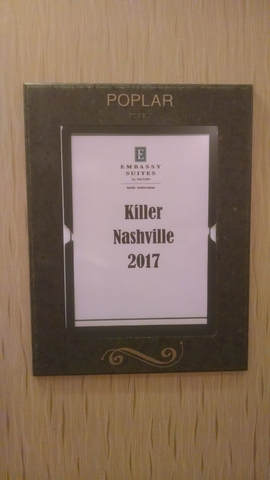 I continue my report on the Killer Nashville writers' conference in August with a panel populated by several stellar mystery authors. 2:00 Saturday August 26 – I’m not the Same Anymore: Character Arcs Catherine Dilts – moderator; J. A. Jance, Margaret Mizushima, Sharon Marchisello, Karen McCullough, Howard Owen I was the moderator for this panel of gifted authors, speaking on the topic of how to maintain character arcs over the course of a novel, or a series. Unfortunately, I didn't get a photo of this panel. I opened by giving two definitions. If you Google character arc, the ever helpful Wikipedia gives you this definition: A character arc is the transformation or inner journey of a character over the course of a story. If a story has a character arc, the character begins as one sort of person and gradually transforms into a different sort of person in response to changing developments in the story. On the other hand, the Narrative First website adds this caveat: Not all growth is transformative. Sometimes a person can grow by maintaining their position, shoring up their resolve against whatever is thrown at them. This is no less meaningful than the kind of growth where someone changes who they are or how they see the world. I asked how authors keep track of character arc, and whether they are ever surprised by their characters. Best-selling author of multiple series J. A. Jance said she maintains a file for characters with details including physical descriptions and weapons they use. Even then, details can slip over the course of a series. This is where Jance told the audience GYAB: Give Yourself A Break. Jance does not outline. She said the story is “all a surprise.” Howard Owen began writing a short story that became a novel series. He pins pictures to a board to keep track of his characters. Sharon Marchisello is a pantser, but does keep a spreadsheet of her characters. Karen McCullough’s Market Center mysteries were planned as a series. She uses One Note to track character arc. Margaret Muzushima outlines her Timber Creek K-9 series. She has been surprised when character arc changed as she wrote the story. I went from moderating, to being on the next panel.  3:00 Saturday August 26 – It’s Not About Selling Books: Social Media for Writers Julie Schoerke – moderator; Catherine Dilts, Michelle Kubitz, Jenean McBrearty, Warren Moore, Shari Stauch I do have a photo of this panel, but by Saturday afternoon some of us were definitely worn out. Instead, check out the photo of the fun elevators in the Embassy Suites Hotel. Some of us encountered Elevator Boy, a young man very serious about pretending to be an elevator operator. Julie Schoerke guided a lively discussion on this panel covering social media venues like Facebook, Twitter, Goodreads, and blogging. All agreed that aggressively and relentlessly pushing a buy-my-book message is guaranteed to fail. Establishing a presence on social media consistent with your fiction is a better tactic. One panelist was still full of energy. Ah, youth! Michelle Kubitz was knowledgeable about all things social media. She was also runner up for the Claymore Award. I chatted with authors in the book store for a while, then hurried to Room 224 to hear the solution to the staged Crime Scene. I did not get my paperwork in on time to be a contender for the prize, but I had to know whodunnit. 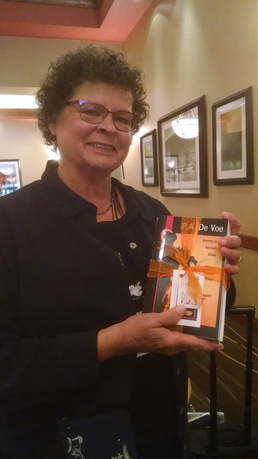 Pam De Voe holds her trilogy of mystery books set in ancient China Pam De Voe holds her trilogy of mystery books set in ancient China 5:40 Saturday August 26 – The Killer Nashville Crime Scene Explained I won’t give the solution, because it would lack meaning. Solving a conference crime scene is a “you had to be there” kind of deal. I will say that former Tennessee Bureau of Investigation (TBI) Assistant Director Dan Royse did a great job of explaining how law enforcement would put together the clues to solve an actual crime. Much time, creativity, and labor went into setting up the mock crime scene, the suspect interviews, and the scenario. This was one of the highlights of the conference. My husband and I went to the Networking Open Bar, where we chatted with new friends. My husband decided his new purchases of special Jack Daniels whiskey and liquor were preferable to the free drinks offered at the bar. We met up with Sisters in Crime for dinner at Pasta & Cream, a little place in Franklin. Several of the Sisters were attending the awards banquet. I dragged my husband along with the promise that he wouldn’t be the only guy, but the other Mister bailed at the last minute. Somehow, he survived being surrounded by women authors chatting about murder scenarios. I was exhausted from another full day at Killer Nashville. Next week, I’ll finish blogging about Killer Nashville with Day Three, and closing words of inspiration. 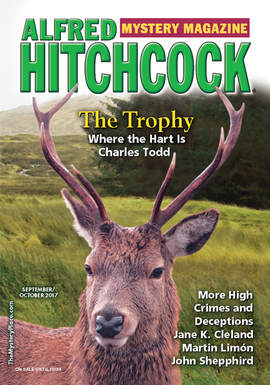 I recently read my first Charles Todd novel, A Duty to the Dead. I know. I am slow to the party. I found the mystery, set in WWI era England, totally charming. When I saw Charles Todd listed on the cover of the current AHMM, I couldn't wait to read the story. I did have to wait, though. Life gets busy. When I finally sat down to read The Trophy, I found it a thoroughly satisfying mystery story. I also read i, by Steve Hockensmith. This story is proof that AHMM is willing to take chances with fresh story-telling styles. Told mostly in a series of e-mail exchanges with a scammer, the story was entertaining, and hit close to home for all of us who have received a painfully obvious, grammatically incorrect scam e-mail. By the way, Alfred Hitchcock Mystery Magazine has a new and improved website. Visually appealing, easy to navigate, and with lots of insider info, the new website is worth checking out. 9/12/2017 0 Comments Killer Nashville: Morning, Day Two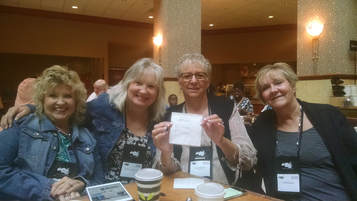 Susan Keene, Lois Curran, Shirley McCann, and Tierney James wish Cara a happy birthday from Killer Nashville Susan Keene, Lois Curran, Shirley McCann, and Tierney James wish Cara a happy birthday from Killer Nashville Saturday, August 26 at Killer Nashville began with another great breakfast in the Embassy Suites Hotel. I sat with a group of authors who were part of the same writing group (photo). I missed the days when I went to conferences with my critique group, but there are advantages to being solo, too. We moved to the Birch room to hear debut authors tell us about their novels. The noise level was high, and the microphone broadcast author voices with widely varying success, but we did hear about some great new fiction. 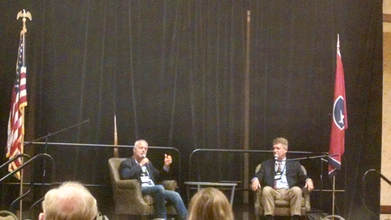 Conference chair Clay Stafford interviews General A. J. Tata Conference chair Clay Stafford interviews General A. J. Tata 8:00 Saturday August 26 – Interview with General Tata Conference chair Clay Stafford interviewed A. J. Tata. The General said he always wanted to be an author. He puts everything he’s got into a story. After he thinks he’s said everything he can, then the next idea comes along. General Tata experienced an epiphany in his twenties while watching television. He asked himself why he was consuming entertainment when he wanted to be the one creating entertainment. A career in the military kept him from realizing his writing dream until years later. Great lines from A. J. Tata’s interview: You’re never too old to get shot. The last thing I want in my camp is a dead general. Writing is butt in seat time. General Tata told a story about delivering USO mail bags to troops in a remote camp in Afghanistan. He reminded the audience about the importance of sending To Any Soldier letters and packages. 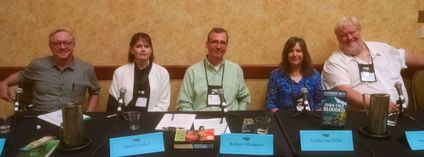 Moderator Bryan Robinson, Sheila Sobel, Bob Mangeot, Catherine Dilts, Warren Moore Moderator Bryan Robinson, Sheila Sobel, Bob Mangeot, Catherine Dilts, Warren Moore 9:20 Saturday August 26 – Lighten Up, You Are Where You’re Supposed to Be: Keeping Perspective Bryan Robinson let each panelist introduce him or herself, telling a bit about what had happened in our writing careers to make lightening up necessary. I gave my experience of being a Five Star orphan, having two novels published, then receiving an email from the publisher in January 2016 that they were ending their entire mystery line. This earned a few gasps, and some heads nodding in knowing agreement. Great lines from the Lighten Up panel: Bryan: Rejection is not fatal or final. Sheila Sobel: Understand the difference between critique and criticism. Warren Moore: When you receive criticism, listen with wide open ears. The comments may pass right through, but some may stick. I shared that being kicked to the curb by an agent or publisher was not the end of the world. If you were a factory worker, and the doors closed, you’d go out and find another job. Sheila: Sit down and write what you love, and you’re in for the ride of your life. Bob Mangeot gained perspective when a friend told him, “you’re doing something a lot of us would love to do.” He recommending asking yourself “why am I writing,” understand that purpose, and build a writing routine that saves that. Bryan shared the insight that it was “How am I treating my writing life, not how is my writing life treating me.” After my panel, I snuck away with my husband to do some sightseeing. We toured a Confederate Army cemetery, saw the Natchez Trace bridge, and ran into what was probably a copy of the General Lee, the car from Dukes of Hazard television show – slideshow below. Then we hurried back to get me to my next panel, which I moderated. My report on Killer Nashville continues next Tuesday. 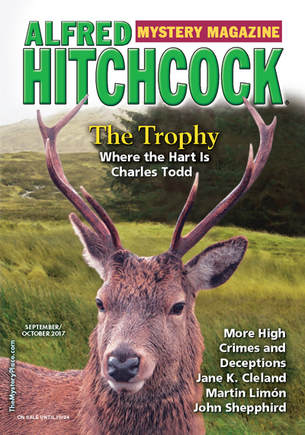 This week, I review four short stories of various lengths. A disclaimer: I suppose I am not actually reviewing, if that implies passing judgement on a work. If a story appears on my blog, I enjoyed it enough to mention it here. Let's start with the longest story: Night Flight to Bali by Jane K. Cleland, appearing in Alfred Hitchcock Mystery Magazine September/October 2017. I estimate this to be well over five thousand words. Sabrina has just lost her mother. She plans to run away to Bali with her married boyfriend Sam. The story unfolds with subtle hints that open layers of intrigue. There are rules for short story writing, and Night Flight to Bali breaks more than one, with success. One is the author must jump immediately into the action. Another is to stick to one point of view. The thing about rules is you shouldn't break them unless you know what you're doing. Cleland clearly does, as the sedately paced opening sets the groundwork for the rest of the tale. The story could not be told as effectively without going into different points of view. By the end of the story, I felt like I'd been taken on a roller coaster ride. The pace quickens, and unexpected twists lead to a closing that implied this wasn't over. Not yet. 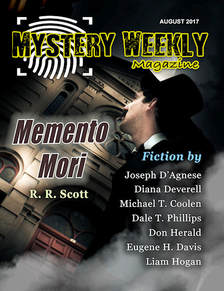 Minnie's Mincemeat Pie by Dale T. Phillips appears in Mystery Weekly. I'm a sucker for stories about feisty old ladies getting in trouble. Viola is enraged that Minnie takes first place for her mincemeat pie in a local fair every year. At close to three thousand words, this story has lots of dialogue and is spare on description. It almost reads like a play. Viola is determined to get Minnie's recipe. Her contempt for the other woman and her successful pie business is clear. "The old bat had to be in her seventies, not a comfortable fortyish like Viola." Viola attempts to bully her way to the recipe, but Minnie is full of surprises. 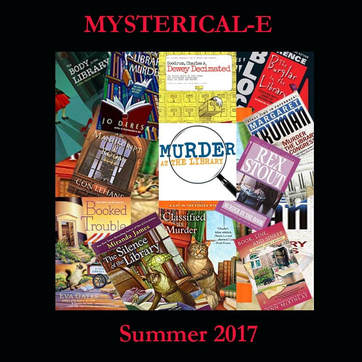 Yoga Kills by J. R. Lindermuth is a bit over two thousand words. Ed has lost his job, a victim of a factory closing. He would probably veg in front of the TV, but his wife Nan is watching a yoga video and performing moves with amazing flexibility. Nan suggests he's depressed, and sends him to the neighborhood bar. Ed suspects Nan has joined a gym because she's having an affair. He decides to pursue the lithe yoga instructor in the video. Don't make assumptions seems to be a theme of this story, which ends with a delightful twist. Consequences by Leslie Budewitz is a lesson in brevity. I can easily imagine this story as a major plot-line in a novel, yet it works as flash fiction. A campfire, a girl, and an old man set the stage for an encounter in the astonishing pace of less than 150 words. Four short stories, four different lengths. I hope this week's review has whetted your appetite for short fiction from the many venues available. 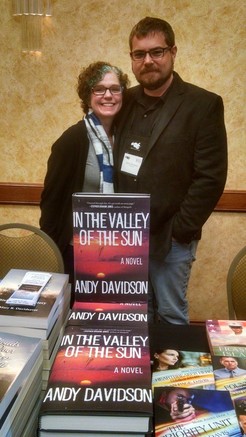 Crystal and Andy Davidson Crystal and Andy Davidson I continue my adventures at Killer Nashville 2017. Lunch was provided by the conference, which saved attendees from added expense, and time spent hunting down a restaurant. It also offered more networking time, as writers chatted about the craft, the conference, and life in general. 12:00 Friday August 25 - Interview with Chris Grabenstein After lunch, conference chair Clay Stafford interviewed middle grade author Chris Grabenstein. Chris advised writers to say yes to unexpected opportunities. Grabenstein told us that three of his readers’ favorite words are poop, fart and underpants. He clearly knows his reading audience, and had this banquet room full of authors laughing and applauding. Writing Tip: “We all start out imitating people we like,” Grabenstein said. He advised we “find a voice.” A first person narrator demands a strong voice, so writing in first person is a good way to discover your writing voice. Strong voice is key to succeeding in fiction writing. 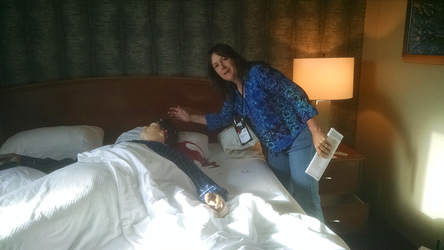 1:20 Friday August 25 – Crime Scene After the interview, I went to Room 224, the Killer Nashville Crime Scene. A hotel room was converted to a realistic crime scene, with clues and red herrings sprinkled throughout. I worked my way through the living area, to the bathroom, and finally to the bedroom, where a realistic corpse reclined in bed, his head resting on a blood-soaked pillow from the fatal gunshot to his head. Participants were given a clue sheet and a spreadsheet to mark for forensics testing. The clue sheet told us how to access interviews with witnesses and suspects. The point of the exercise was to solve the crime and win attendance at KN 2018, but the more important point was teaching participants about crime scene investigation. Everything looked like a clue, including a single Coke can among the case of Pepsi cans, a clearly ridiculous suicide note, fast food receipts, and a condom floating in the toilet. I viewed the interviews online later while my husband toured of the Jack Daniels distillery. I narrowed down the suspects, but was not 100% certain who did it. I gained a deeper respect for the difficulty law enforcement has winnowing fact from fiction. The solution had to wait for Saturday. 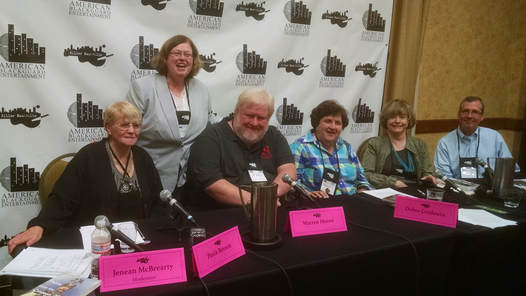 l-r: Jenean McBrearty, Paula Benson, Warren Moore, Debra Goldstein, Kathryn Lane, Bob Mangeot l-r: Jenean McBrearty, Paula Benson, Warren Moore, Debra Goldstein, Kathryn Lane, Bob Mangeot 2:20 Friday August 25 – You’ve Got 5,000 Words: How to Write Short Stories I was eager to hear from some of my favorite short story authors, many appearing in Alfred Hitchcock Mystery Magazine. Moderator Jenean McBrearty told the audience that the internet is insatiable. Short story outlets are in constant need of material. Paula Benson emphasized the importance of short stories, pointing out that being published in short fiction is a publishing credit, and a short fiction category is included on many awards ballots. Debra Goldstein strongly recommended following directions for word count and subject matter when you’re submitting. Warren Moore said short fiction may not be financially rewarding, but finds that liberating – he has the freedom to write what he wants the way he wants. Kathryn Lane believes creativity is important, but writers need discipline to write the story. Bob Mangeot writes short stories exclusively. He cautions that the short story is its own specific form, distinct from the novel. He believes a short story should be written in one sitting, and contain one thread designed for “a big honking moment.” When asked to name their favorite short stories, both Paula and Debra listed B. K. Stevens among their favorite authors, for Thea’s First Husband and The Last Blue Glass. Bob listed Edgar Allen Poe’s The Cask of Amontillado and Flannery O’Connor’s A Good Man is Hard to Find. Kathryn listed Jorge Luis Borges as a favorite short fiction author, with The Garden of Forking Paths being on her list as well as on Warren’s. Kathryn listed Poe’s Murder in the Rouge Morgue, while Warren added Chaucer’s The Pardoner’s Tale and Harlan Ellison’s "Repent, Harlequin!" Said the Ticktockman. Here are the panelist's rapid-fire responses to how they define characters quickly in short fiction: Paula – Listened to and imitated dialogue from the senate floor for characters in similar roles in her fiction. Warren – through action. Debra – through dialogue or a sharp sentence. Kathryn – in the opening paragraph, with vivid character description. Bob – let the actors start acting and get out of their way; in the opening paragraph, give them a problem. After this panel, I went to my room to view the Crime Scene interviews. My husband returned from Jack Daniels with an exciting report on the history of the distillery, plus bottles of the product to sample. Worn out from a busy day, and with my head filled to bursting with new ideas and information, I turned in for the night. My report on Killer Nashville continues next Tuesday, with Day Two. #KillerNashville2017 |
Subscribe to this blog: |
Proudly powered by Weebly
 RSS Feed
RSS Feed